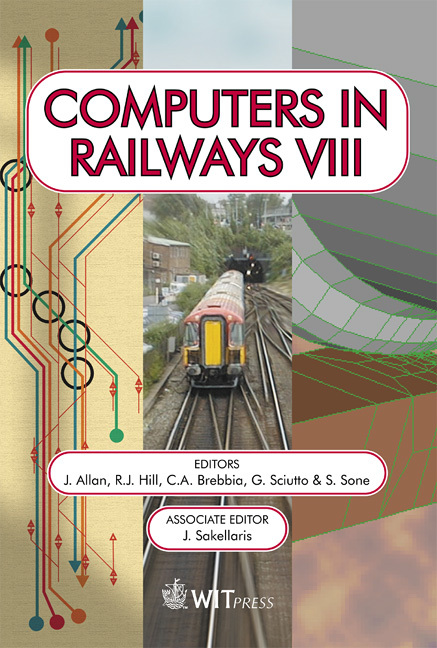Time-triggered Exchange Of Train Route Data Between Train Control Systems
Price
Free (open access)
Transaction
Volume
61
Pages
9
Published
2002
Size
503 kb
Paper DOI
10.2495/CR020041
Copyright
WIT Press
Author(s)
M Montigel
Abstract
The increased heterogeneity and decentralisation of train control systems, often requiring the collaboration of several suppliers, calls for a simplification of the involved interfaces. Time-triggered protocols form a favourable alternative to the event-triggered protocols, which are still used in most vital computer-based applications involving data exchange. The advantages of time-triggered protocols include an increased robustness against transmission failures and a simplification of the underlying definitions. To take full advantage of time-triggered protocols, the used telegrams should be of fixed length whenever possible. This poses a problem in transmitting state information of ambiguous train routes, i.e., if there exist several such routes between a given pair of start and end point. To overcomes this problem, an algorithm to derive a unique route index is introduced. The proposed approach relies exclusively on geographical track layout data, without the exchange of explicit route tables between collaborating suppliers. As a means to represent track topology data and to introduce the route indexing algorithm, Double Vertex Graphs are used, which -in contrast to ordinary graphs - allow for a correct representation of the topological properties of railway tracks. The indexing scheme proposed here has been successfully applied in the pilot project of an ERTMS Level 2 system currently being commissioned by Swiss Federal Railways.
Keywords





